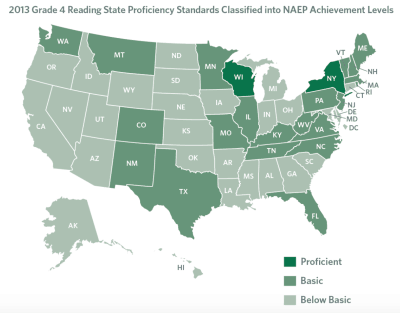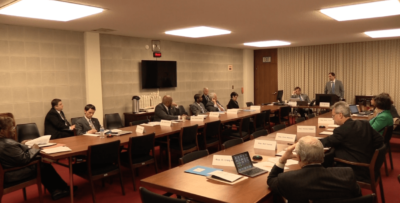
The House pushed a budget-related bill today that would provide salary increases to non-certified public school employees, but the legislation did not include any sign of teacher raises. Meanwhile, Democratic Gov. Roy Cooper held a press conference decrying Republicans’ attempt to bypass his veto of the budget.
The legislation was first introduced with three other budget-related bills at a House Appropriations Committee meeting in the morning. During that meeting, lawmakers were told by General Assembly staff that the bills mirror the dollar amounts found in the final budget passed by the General Assembly and vetoed by Cooper. House leaders are trying to pass provisions of the budget via individual bills to get around Cooper’s veto and make it harder for him to refuse to sign off on the legislation as it makes its way out of the General Assembly.
House Minority Leader Rep. Darren Jackson, D-Wake, asked House Appropriations Senior Chair Rep. Jason Saine, R-Lincoln, whether a bill would be forthcoming that includes teacher raises. Saine didn’t discount the possibility but didn’t commit to a definite answer.
Under the original budget plan passed by the General Assembly, teachers would get an average 3.8% pay raise over the biennium, but all new raises go to teachers with 16 years of experience or more. Teachers with fewer than 16 years simply get their planned step increases.
During the committee meeting, Jackson urged lawmakers to vote against the bill that includes raises for non-certified school employees, such as teacher assistants, custodial staff, and others. In the legislation, the employees will get a 1% salary increase, but Jackson noted that many of those who work on a 10-month schedule will get a lower, prorated, amount.
“It’s just awful for the lowest paid school employees,” he said of the bill.
He also pointed out that most state employees are getting a 2.5% raise, and that the non-certified public school employees were left out of legislation last year that raised the minimum wage of state workers to $15 an hour.
The bill also includes a one-time 0.5% increase for retirees from the Teachers and State Employees’ Retirement System, among others.
The community college system did get its salary increases in the bill — $12.4 million recurring in the first year and $24.8 million in the second year for community college personnel.
At the start of the meeting, House Appropriations co-chair Rep. John Faircloth, R-Guilford, noted that the state is 58 days into the fiscal year.
“Here we are, 17% of the fiscal year has already passed, and no action has been taken on these salaries,” he said. “Well, it’s high time that we keep our bargain with our employees.”
The full House took up the bill later in the afternoon and passed it on second reading. But the final reading was delayed due to an objection by Jackson, keeping it on the calendar until tomorrow. Jackson said Democrats intend to submit amendments to the bill but didn’t have time to get them ready by today’s House session. He objected to give them adequate time to get the amendments ready.
In between the appropriations committee and the full House session, Cooper held a press conference in which he called the Republicans attempt to pass piecemeal budget bills “another trick.”
“They are going to continue at taxpayer expense to explore every option to get this budget exactly the way they want it,” Cooper said of Republican lawmakers.
During the press conference, Cooper held up the thick stack of papers that makes up the General Assembly’s budget in one hand, and the much thinner package of changes that he wanted Republicans to make.
“These are the only changes we asked for in the budget,” he said.
Cooper said he sent out a letter today to K-12 and community college leaders urging them to contact their legislators and tell them to negotiate with Cooper. He also criticized the average 3.8% pay raise for teachers in the original budget passed by the General Assembly, saying it won’t keep North Carolina competitive with other states.
Cooper has offered a “compromise” plan that would increase teacher pay an average of 8.5% over two years, with every teacher getting some kind of raise. Cooper’s original budget proposal was for a 9.1% average pay raise.
When asked if he would veto a piecemeal budget bill that included the same teacher pay raises that were in the General Assembly budget, Cooper equivocated.
“We’ll have to look at each bill and see what they say,” he said, adding later, “This piecemeal budgeting will not work well.”




